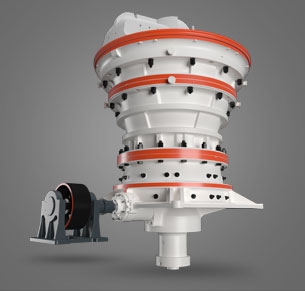A stone crushing and screening plant typically includes a rock jaw crusher as the primary crushing unit, followed by secondary crushers (like cone or impact crushers), vibrating screens, conveyors, and sometimes sand-making machines. Below is a breakdown of how such a system works:
1. Rock Jaw Crusher (Primary Crushing)
– Function: Breaks large rocks (raw feed) into smaller pieces (~150–300 mm).
– Key Features:
– Fixed and movable jaw plates apply compressive force.
– Adjustable discharge opening to control output size.
– High efficiency for hard materials (granite, basalt, etc.).
– Common Models:
– PE Series (e.g., PE-600×900)
– JC Series (advanced hydraulic adjustment)
.jpg) 2. Secondary Crushing (Optional)
2. Secondary Crushing (Optional)
– Cone Crusher: For finer crushing (output: ~20–60 mm).
– Impact Crusher: For softer rocks or recycled materials.
3. Screening Plant
– Vibrating Screens: Separate crushed stones into different sizes (e.g., 0–5mm, 5–10mm, 10–20mm).
– Multi-Deck Screens: Allow simultaneous grading of multiple aggregate sizes.
4. Conveyor System
– Transports material between crushers, screens, and stockpiles.
5. Auxiliary Equipment
– Dust suppression system (water spray/filters).
– Control panel for automation.
– Generator for mobile/remote operations.
—
Typical Flow of a Stone Crushing Plant:
1. Feeding: Dump trucks load raw rocks into a vibrating feeder.
2. Primary Crushing: Jaw crusher reduces large rocks to ~6–10 inches.
3. Secondary Crushing: Cone/impact crusher further refines the material.
4. Screening: Vibrating screens sort aggregates by size; oversized material is recirculated.  Stockpiling: Finished products are stored or loaded for transport.
Stockpiling: Finished products are stored or loaded for transport.
—
Applications of Crushed Stone:
– Concrete production
– Road base construction
– Railway ballast
– Landscaping
Would you like details on specific equipment models, capacity calculations, or maintenance tips? Let me know how I can refine the information!





Leave a Reply